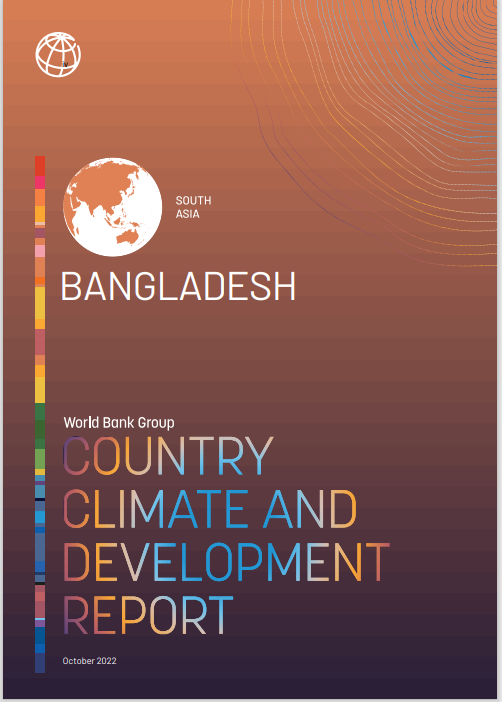🌿 COP 30 - Building a Greener Tomorrow
The 30th UN Climate Change Conference (COP 30) is taking place in Belém, Brazil. Stay informed about global climate actions, negotiations, and live sessions from 10 – 21 November 2025.
Get Updates
Bangladesh Country Climate and Development Report (CCDR)
Abstract
Evidence from the last decade shows that the parts of Bangladesh exposed to multiple overlapping shocks have witnessed relatively slower poverty reduction. In the years ahead, climate change is likely to continue to slow the progress on poverty reduction. The poor and most vulnerable populations are most impacted due to their reliance on agriculture and other climate-sensitive natural resources for income and livelihoods. With higher frequency of climate related shocks and disasters vulnerable populations and the chronically poor will face long lasting and multigenerational effects, resulting in costly coping strategies such as divesting productive assets and curtailing investments in human capital (e.g., nutrition and education). Migration costs are often prohibitive. Strong, adaptive social protection measures to enable poorer households to overcome barriers to internal mobility, are needed. Those households assigned monetary incentives to temporarily out-migrate during the lean season (monga) are likely to do so, suggesting the presence of significant credit constraints.
Citation
WB, 2022, Bangladesh Country Climate and Development Report (CCDR)The World Bank Group, 1818 H Street NW, Washington, DC 20433, USA
Publisher
The World Bank
Rights Holder
The World Bank
URI
https://knowledgehub.pksf.org.bd/collections/Y1lTc3BTRGNsaWM0Vmpva0R2OWtxdz09

